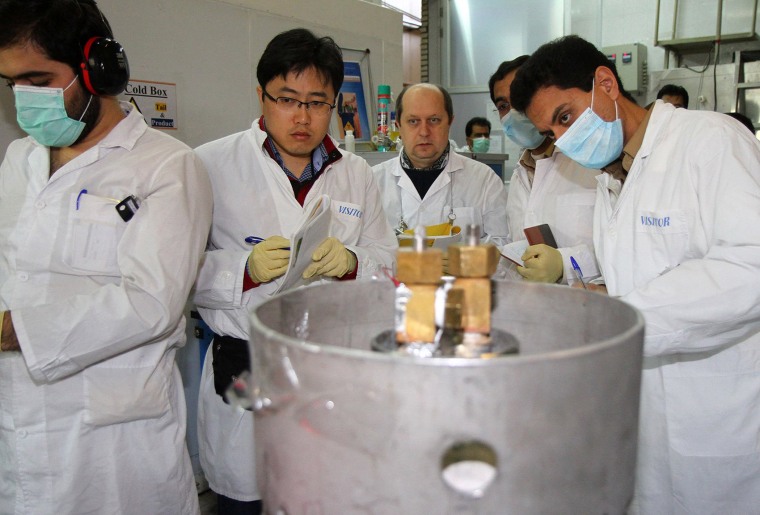It's been two months since Iranian officials reached an agreement with the five permanent members of the United Nations Security Council plus Germany (P5+1) on a six-month nuclear deal. We
learned last week that the framework, which garnered international approval, would be implemented starting on Jan. 20.
That, of course, is today. And while it's literally the first day of a six-month process, so far, the agreement is
working as intended.
Senior officials said on Monday that Iran had begun suspending its most advanced nuclear enrichment as part of a deal with world powers from which Tehran is expecting positive economic changes with the lifting of some sanctions. In response, news reports from Brussels said, the 28-nation European Union agreed to suspend some punitive restrictions with measures to come into force later on Monday to facilitate trade in petrochemicals and precious metals and the provision of insurance for oil shipments.
As part of the agreement reached in November, International Atomic Energy Agency inspectors will be in Iran, monitoring sites to ensure compliance. In this case, officials from the IAEA arrived in Tehran two days ago, inspected two main enrichment facilities, and confirmed that, at least at this point, the parties are meeting the terms of the deal.
White House officials aren't popping champagne bottles, but the West Wing is clearly pleased by the incremental progress.
"These actions represent the first time in nearly a decade that Iran has verifiably enacted measures to halt progress on its nuclear program, and roll it back in key respects," [White House Press Secretary Jay Carney said.] Carney also said Iran had begun to provide the IAEA with "increased transparency" into its nuclear program, through "more frequent and intrusive inspections and the expanded provision of information to the IAEA." "Taken together, these concrete actions represent an important step forward," Carney said. As a result of Iran's actions, Carney said the western nations will begin to provide "the modest relief agreed to with Iran."
State Department spokesperson Jen Psaki added that officials will be "clear-eyed about the difficulties ahead," but the preliminary progress makes clear "that we have an unprecedented opportunity to see if we can resolve this most pressing national security concern peacefully."
In the meantime, the six-month talks between Iran and the P5+1 nations -- the United States, Britain, China, France, Germany, and Russia -- are still underway, with diplomats searching for a permanent deal on Iran's nuclear future. It's best to keep expectations in check, but so long as Congress doesn't
sabotage the diplomatic process on purpose, the process will continue.
